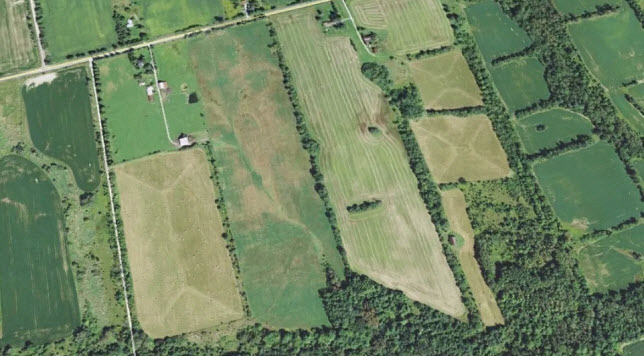The federal government purchased land in 1972 to build an airport
By Diego Flammini
Staff Writer
Farms.com
Ag industry members want to see a large acreage of farmland in Pickering remain as such.
Prime Minister Pierre Trudeau’s Liberal government purchased 18,600 acres of Class 1 and Class 2 farmland in Pickering, Markham and Uxbridge in 1972 for the construction of an airport. The plan was put on hold in 1975 in favour of expanding existing airports.
Fast forward to 2020 and the Pickering airport remains unbuilt.
For context, the average farm size in Ontario is 249 acres. And the estimated value of land and buildings per acre in Durham County is more than $10,000 per acre, the 2016 Census of Agriculture says.
Today the federal government receives payments from 172 active agricultural leases that cover around 6,500 acres of the potential airport site. Lessees pay rent of $120/year per workable acre to Transport Canada.
Leases were limited to an annual basis until April 2018 when all leases became 10-year agreements that included one-year termination clauses.

Approximate site of the potential airport in Pickering.
Google Earth photo
With so much time passed and the airport no closer to being built than when the land was purchased, farmers are calling for longer leases to help them expand their businesses.
“There isn’t a lot of incentive for anyone who’s renting those lands to make any improvements to the land when you might only be getting a one-year deal,” Steve Brackenridge, OFA Director for Durham Region, told Farms.com. “When you look at the rate farmland is being lost to urbanization, it would be a shame to lose good farmland.”
One group, Land over Landings, is dedicated to preserving the Pickering lands for agri-food production.
Using some of those lands for agriculture could create 2,100 jobs and contribute about $240 million to the community each year, a 2018 report commissioned by the group discovered.
“If they were to allow cideries, wineries, bistros, those kinds of businesses that could evolve on the lands over time, we’d be much more employment-intense,” Susan Reesor, vice-chair of Land over Landings, told CBC.
Some producers don’t see the need for an airport in Pickering.
Given the current global situation related to COVID-19, very few people will be travelling at all, said Jeremy Slute, a beef producer from Oshawa.
“I think we’re going to see a decline in travel, and I don’t really see the need for an airport,” he told Farms.com. “I think it will be quite some time before airports are as busy as they were before this happened. I’ve been hearing about this airport since I was a little kid, and nothing has come of it.”
Some members of the community, however, do like the idea of a Pickering airport.
Finding a way to support agriculture and the airport could have a lasting effect on the community, said Durham Regional Chair John Henry, who estimated the airport could provide more than 10,000 jobs.
“We have some tremendous opportunities to utilize the talent that’s out there and the technology that’s around the world to feed the residents of Durham and Ontario by doing things differently,” he told CBC. “Grow food, move goods, support the aerospace industry. We can do that all together on that parcel of land.”
A 2016 KPMG report commissioned by Transport Canada found southern Ontario won’t need another airport before 2036.